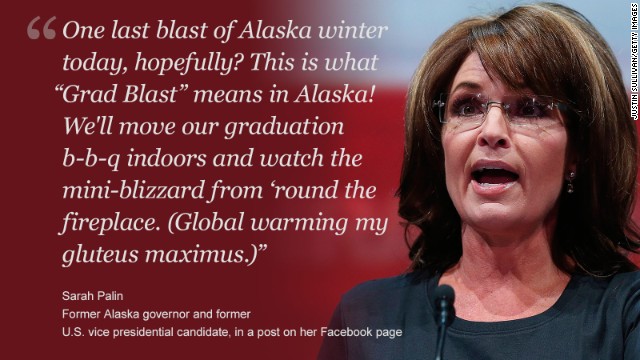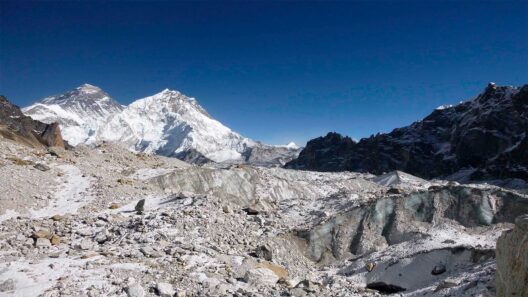The debate surrounding climate change has garnered significant attention, particularly the claim propagated by some skeptics that human activities are not the primary drivers of global warming. This assertion rests on a variety of arguments that need to be scrutinized critically. In this discourse, we will unravel these claims, providing insights into the multifaceted nature of climate science and addressing the misconceptions that bolster such skepticism.
One of the principal arguments skeptics forward is the assertion that climate changes are inherent to the Earth’s natural cycles. They often cite historical climate variations, such as the Medieval Warm Period and the Little Ice Age, as evidence that climate fluctuations are primarily natural phenomena. While it is true that the Earth has undergone significant climatic shifts over millennia, scientific consensus indicates that the current rate of warming is unprecedented in the context of geological time scales. The accelerated increase in global temperatures correlates closely with industrialization and the concomitant rise in greenhouse gas emissions, which starkly contrasts with the gradual, long-term changes observed in paleoclimatic records.
Furthermore, skeptics frequently highlight solar activity as a potential driver of climate change. They argue that variations in solar radiation could significantly influence the Earth’s climate system. Although solar radiation does play a vital role, extensive research indicates that the sun’s output has remained relatively stable over the past several decades. The scientific community has concluded that changes in solar activity are insufficient to account for the dramatic increases in global temperatures observed since the late 19th century. The Intergovernmental Panel on Climate Change (IPCC) has meticulously assessed these factors, substantiating that the dominant cause of recent global warming is attributable to human-induced effects.
Moreover, another claim posited by skeptics is the notion of climate models being unreliable, often citing predictions from past models that did not materialize. While it is true that no model can predict the exact trajectory of future climate changes, because of the complex and interdependent nature of climate systems, these models are based on robust scientific principles and extensive empirical data. The simulation of climate models involves parameters that allow scientists to gauge future scenarios under varying levels of greenhouse gas emissions. Discrepancies can arise from unexpected variables or extreme weather events; however, the overarching trend of a warming climate remains consistent across multiple models. This reliability indicates that human activities are a significant factor in the climate equation.
In addition to these arguments, skeptics often misinterpret the concept of climate sensitivity, which is a measure of how responsive the Earth’s temperature is to increases in atmospheric CO2 concentrations. Some claim that a lower sensitivity suggests a diminished impact of human influence on climate. However, the breadth of scientific literature supports that the Earth’s climate is quite sensitive to increases in greenhouse gases. This sensitivity is consistently reinforced through various studies that analyze temperature changes alongside CO2 levels. The synergy between these elements culminates in a compelling narrative that underscores human activity’s substantial role in global warming.
The issue of attribution is crucial when discussing climate change. Attribution studies examine the likelihood of extreme weather events occurring due to anthropogenic influences. These studies conclusively demonstrate that many recent weather anomalies—hurricanes, heatwaves, and flooding—are increasingly linked to human-induced climate change. Dismissing these empirical connections undermines the integrity of climatic science and ignores the prevailing evidence, thereby perpetuating a misleading narrative.
Another salient point of contention is the role of carbon sinks, such as forests and oceans, which skeptics often argue dilute the impact of emissions. While it is true that these natural systems can sequester significant amounts of CO2, the overwhelming evidence suggests that the current rate of emissions far exceeds the absorption capacity of these sinks. Deforestation and ocean degradation further exacerbate the issue, leading to a decrease in their ability to mitigate climate change effectively. Consequently, this argument is an oversimplification that ignores the delicate balance of our Earth’s ecosystems.
The socio-economic dimensions of addressing climate change are also pivotal. Skeptics may claim that regulations aimed at reducing emissions hinder economic growth. However, the transition to a low-carbon economy can foster innovation, enhance energy efficiency, and create new job sectors dedicated to sustainable technologies. Urban areas that embrace renewable energy sources are not only reducing their carbon footprints but also reaping the benefits of a diversified economy. It is a false dichotomy to pit economic growth against environmental responsibility, as the two can and must coexist.
Moreover, the concept of intergenerational equity underscores the ethical imperative of addressing climate change. It necessitates that current generations take responsibility for the well-being of future inhabitants of our planet. A societal acknowledgment of this principle can galvanize collective action towards sustainable practices that preserve ecological balance and promote resilience against the changing climate. Dismissing scientific evidence to maintain a status quo, in this case, is profoundly detrimental to future generations.
In conclusion, the claims that humans are not causing global warming are steeped in misunderstanding and selective interpretation of scientific data. Multiple lines of evidence converge, corroborating the conclusion that anthropogenic activities, particularly the release of greenhouse gases through fossil fuel combustion, deforestation, and industrial processes, are fundamentally responsible for recent climate changes. The urgency of this issue necessitates a well-informed public discourse that prioritizes factual accuracy over skepticism. Acknowledging the gravity of climate change is not just a scientific requirement but a moral obligation to safeguard the future of our planet and all its inhabitants.








